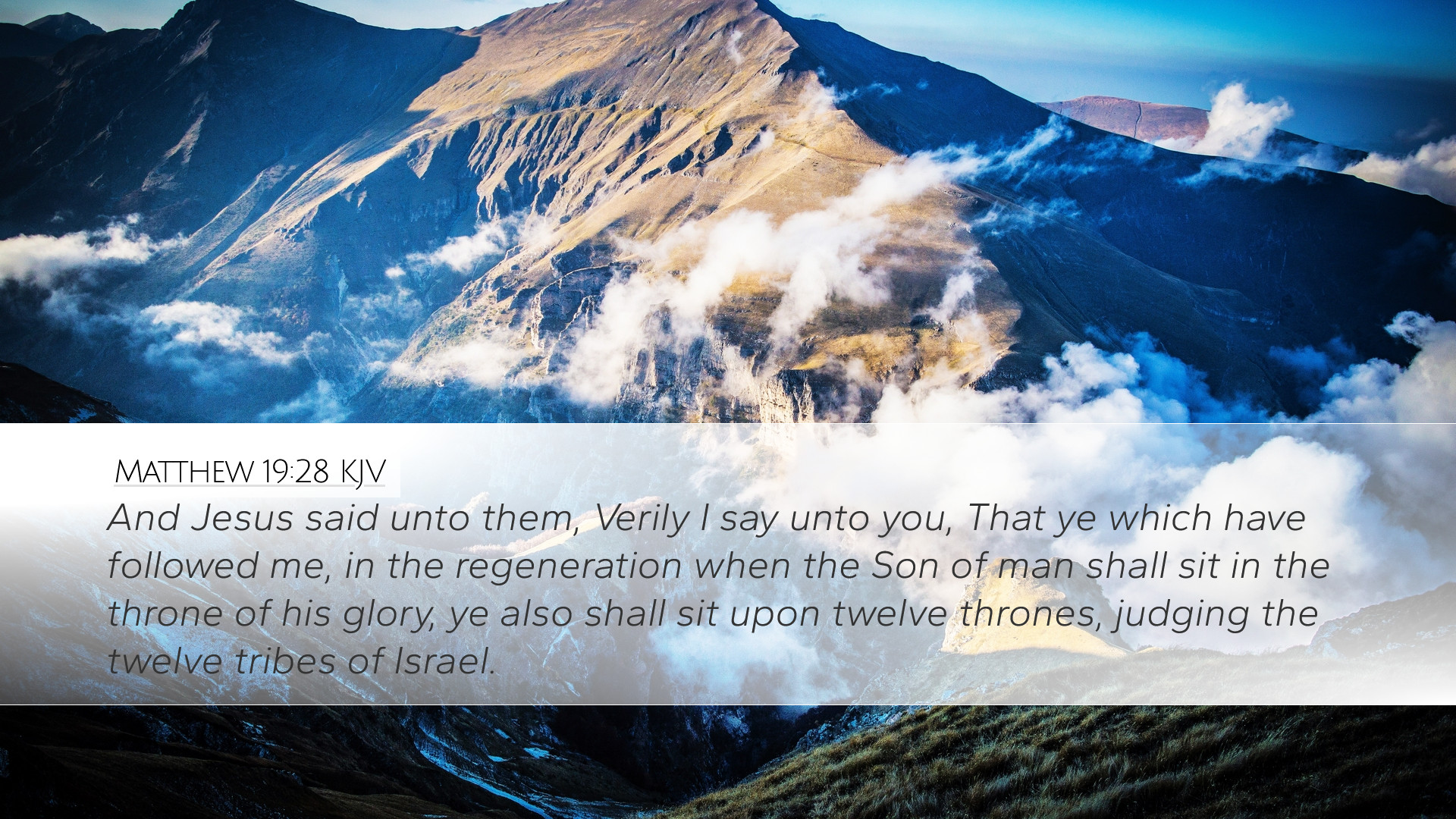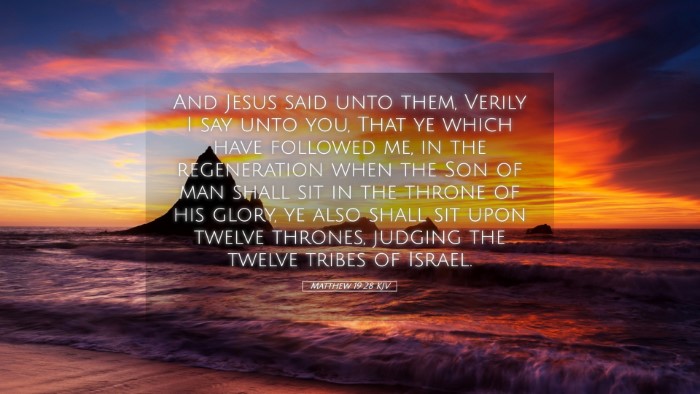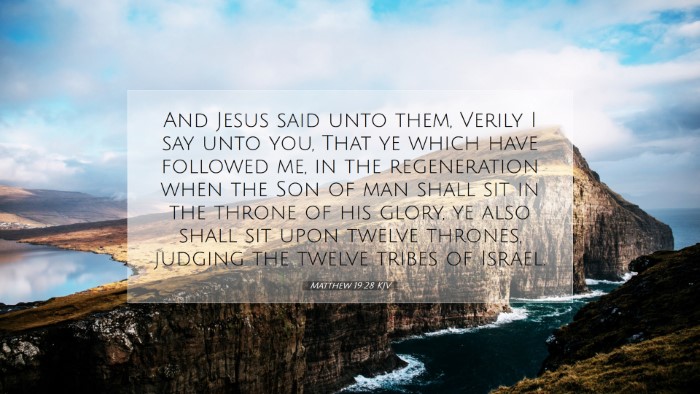Commentary on Matthew 19:28
Bible Verse: Matthew 19:28 (NIV) - "Jesus said to them, 'Truly I tell you, at the renewal of all things, when the Son of Man sits on his glorious throne, you who have followed me will also sit on twelve thrones, judging the twelve tribes of Israel.'
Introduction
This verse is part of a larger discourse in which Jesus addresses His disciples following the rich young ruler's departure. His dialogue touches on themes of sacrifice, rewards, and the future kingdom of God, providing profound insights for pastors, students, and theologians alike.
Contextual Analysis
Matthew 19:28 is situated at a critical juncture in the Gospel of Matthew, where the teachings of Jesus provoke reflection on the nature of discipleship and the eternal rewards that accompany it.
- Disciples' Question: Earlier in the chapter, Peter's question about what they would receive for leaving everything to follow Jesus sets the stage for this profound promise.
- Rich Young Ruler: The juxtaposition of this verse with the preceding account serves to highlight the cost of discipleship and the glorious future that awaits true followers of Christ.
Theological Significance
This verse encapsulates several theological themes:
- The Renewal of All Things: This phrase suggests a future eschatological event, where God will restore creation. Commentaries emphasize the hope tied to the restoration of all creation, affirming God's ultimate sovereignty.
- Sitting on Thrones: The promise that the disciples will judge the twelve tribes underscores their authority and leadership roles in the coming kingdom, which is rooted in their faithfulness and sacrifice.
- Judgment and Authority: The idea of 'judging' implies not just authority but also a role in administering God's justice. Commentators like Matthew Henry elaborate on the notion that this judgment pertains to the governance of the faithful, reflecting the disciples' intimacy with Christ.
Insights from Commentaries
This section synthesizes insights from noted public domain commentators:
Matthew Henry
Henry emphasizes that Jesus' assurance to His disciples highlights both the reward of their labor and the honor bestowed upon them in the kingdom. He notes that their thrones signify a share in Christ's kingdom. Believers are to reflect on their roles in the present world, which prepares them for service in the next.
Adam Clarke
Clarke expounds on the 'renewal of all things,' suggesting that it refers not only to the resurrected state of believers but also points to a complete transformation of the created order. His commentary stresses that the disciples’ reward is a reflection of their faithfulness and perseverance, warning that not every professed believer will have the same authority or position in the kingdom.
Albert Barnes
Barnes highlights the significance of the twelve thrones as a representation of the totality of Israel. He connects this to the role of the church and the promise of leadership within God’s redemptive plan. Barnes encourages readers to view this promise as an incentive for faithful living, knowing that earthly sacrifices will result in heavenly rewards.
Practical Applications
The implications of Matthew 19:28 for Christian living can be profound:
- Encouragement for Sacrifice: This verse serves as a powerful encouragement for believers facing hardships or sacrifices for the sake of Christ. Understanding the future glory can provide strength in trials.
- A Call to Faithfulness: The assurance of positions of authority in the Kingdom reminds believers of the importance of faithfulness in their current walk with Christ.
- Hope of Restoration: As society presents challenges, the promise of renewal encourages believers to remain hopeful and active in their faith in anticipation of God’s ultimate victory.
Conclusion
Matthew 19:28 provides a rich theological resource for understanding the cost of discipleship, the promise of restoration, and the hope of future reward. The insights from various commentaries collectively encourage believers to grasp the magnitude of their calling and the eternal significance it holds. As scholars, pastors, and students reflect on this text, they are invited to engage with both its challenges and its promises, shaping their ministry and personal faith in profound ways.


